Junjuan Xia
Dilated Convolution based CSI Feedback Compression for Massive MIMO Systems
Jun 08, 2021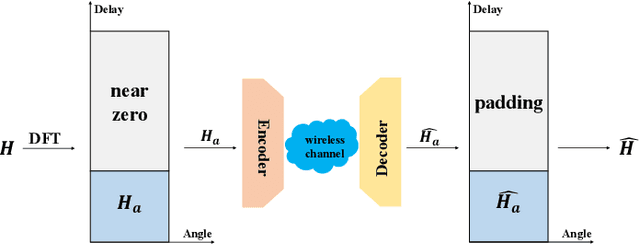
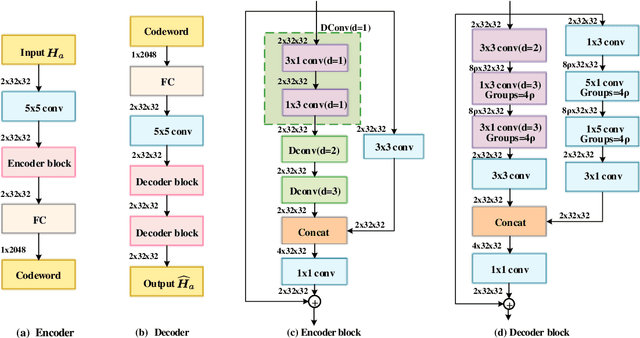
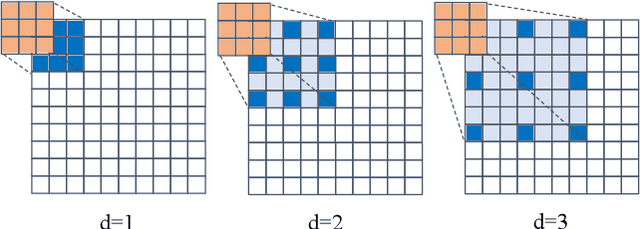
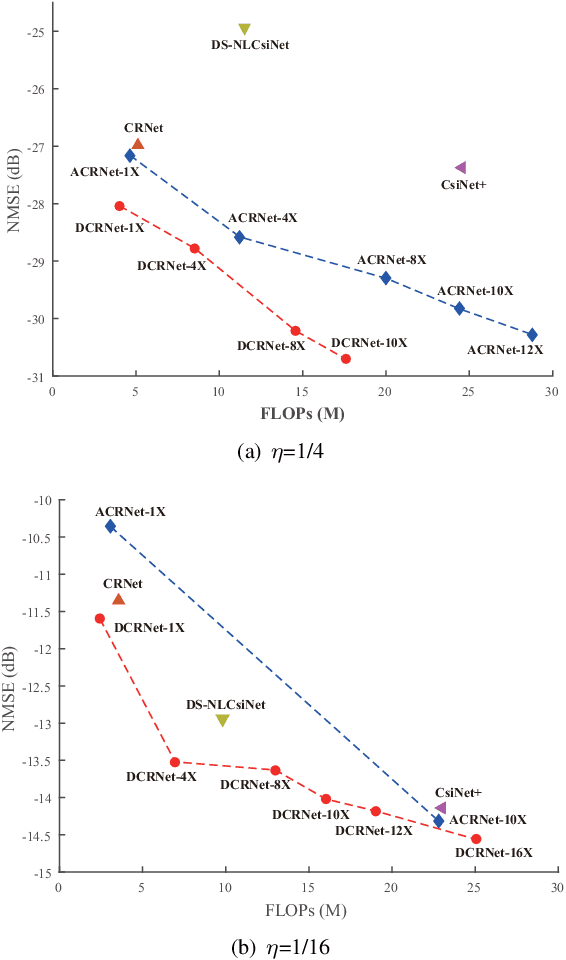
Abstract:Although the frequency-division duplex (FDD) massive multiple-input multiple-output (MIMO) system can offer high spectral and energy efficiency, it requires to feedback the downlink channel state information (CSI) from users to the base station (BS), in order to fulfill the precoding design at the BS. However, the large dimension of CSI matrices in the massive MIMO system makes the CSI feedback very challenging, and it is urgent to compress the feedback CSI. To this end, this paper proposes a novel dilated convolution based CSI feedback network, namely DCRNet. Specifically, the dilated convolutions are used to enhance the receptive field (RF) of the proposed DCRNet without increasing the convolution size. Moreover, advanced encoder and decoder blocks are designed to improve the reconstruction performance and reduce computational complexity as well. Numerical results are presented to show the superiority of the proposed DCRNet over the conventional networks. In particular, the proposed DCRNet can achieve almost the state-of-the-arts (SOTA) performance with much lower floating point operations (FLOPs). The open source code and checkpoint of this work are available at https://github.com/recusant7/DCRNet.
Deep Reinforcement Learning Based Mobile Edge Computing for Intelligent Internet of Things
Aug 01, 2020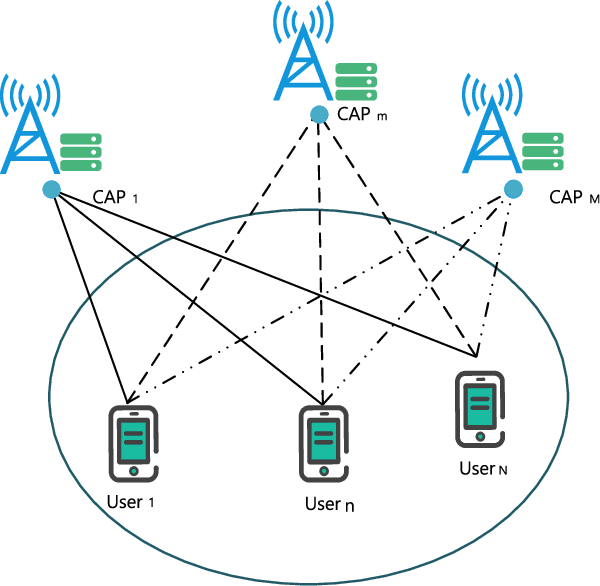



Abstract:In this paper, we investigate mobile edge computing (MEC) networks for intelligent internet of things (IoT), where multiple users have some computational tasks assisted by multiple computational access points (CAPs). By offloading some tasks to the CAPs, the system performance can be improved through reducing the latency and energy consumption, which are the two important metrics of interest in the MEC networks. We devise the system by proposing the offloading strategy intelligently through the deep reinforcement learning algorithm. In this algorithm, Deep Q-Network is used to automatically learn the offloading decision in order to optimize the system performance, and a neural network (NN) is trained to predict the offloading action, where the training data is generated from the environmental system. Moreover, we employ the bandwidth allocation in order to optimize the wireless spectrum for the links between the users and CAPs, where several bandwidth allocation schemes are proposed. In further, we use the CAP selection in order to choose one best CAP to assist the computational tasks from the users. Simulation results are finally presented to show the effectiveness of the proposed reinforcement learning offloading strategy. In particular, the system cost of latency and energy consumption can be reduced significantly by the proposed deep reinforcement learning based algorithm.
 Add to Chrome
Add to Chrome Add to Firefox
Add to Firefox Add to Edge
Add to Edge